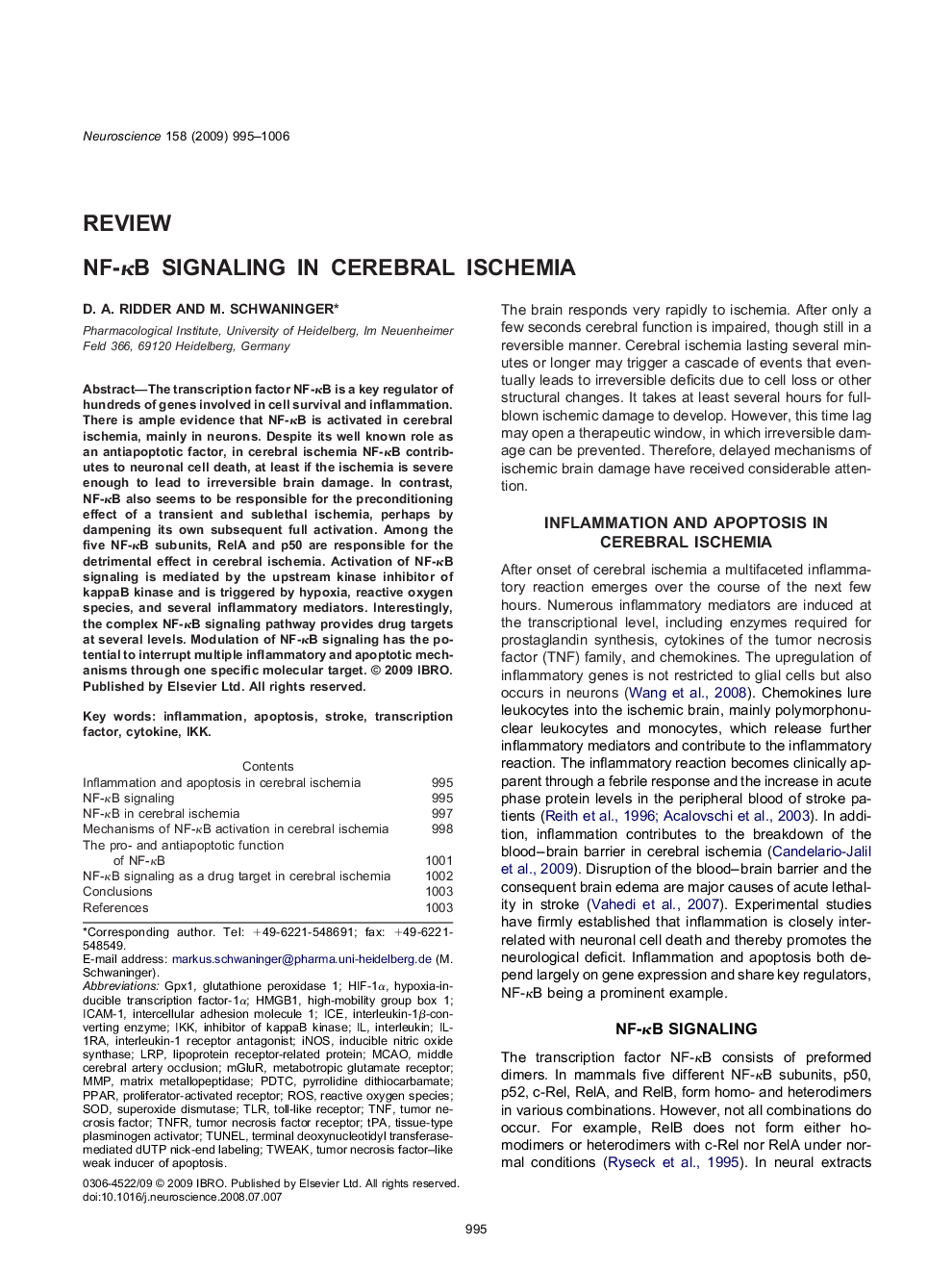| Article ID | Journal | Published Year | Pages | File Type |
|---|---|---|---|---|
| 4340188 | Neuroscience | 2009 | 12 Pages |
The transcription factor NF-κB is a key regulator of hundreds of genes involved in cell survival and inflammation. There is ample evidence that NF-κB is activated in cerebral ischemia, mainly in neurons. Despite its well known role as an antiapoptotic factor, in cerebral ischemia NF-κB contributes to neuronal cell death, at least if the ischemia is severe enough to lead to irreversible brain damage. In contrast, NF-κB also seems to be responsible for the preconditioning effect of a transient and sublethal ischemia, perhaps by dampening its own subsequent full activation. Among the five NF-κB subunits, RelA and p50 are responsible for the detrimental effect in cerebral ischemia. Activation of NF-κB signaling is mediated by the upstream kinase inhibitor of kappaB kinase and is triggered by hypoxia, reactive oxygen species, and several inflammatory mediators. Interestingly, the complex NF-κB signaling pathway provides drug targets at several levels. Modulation of NF-κB signaling has the potential to interrupt multiple inflammatory and apoptotic mechanisms through one specific molecular target.
